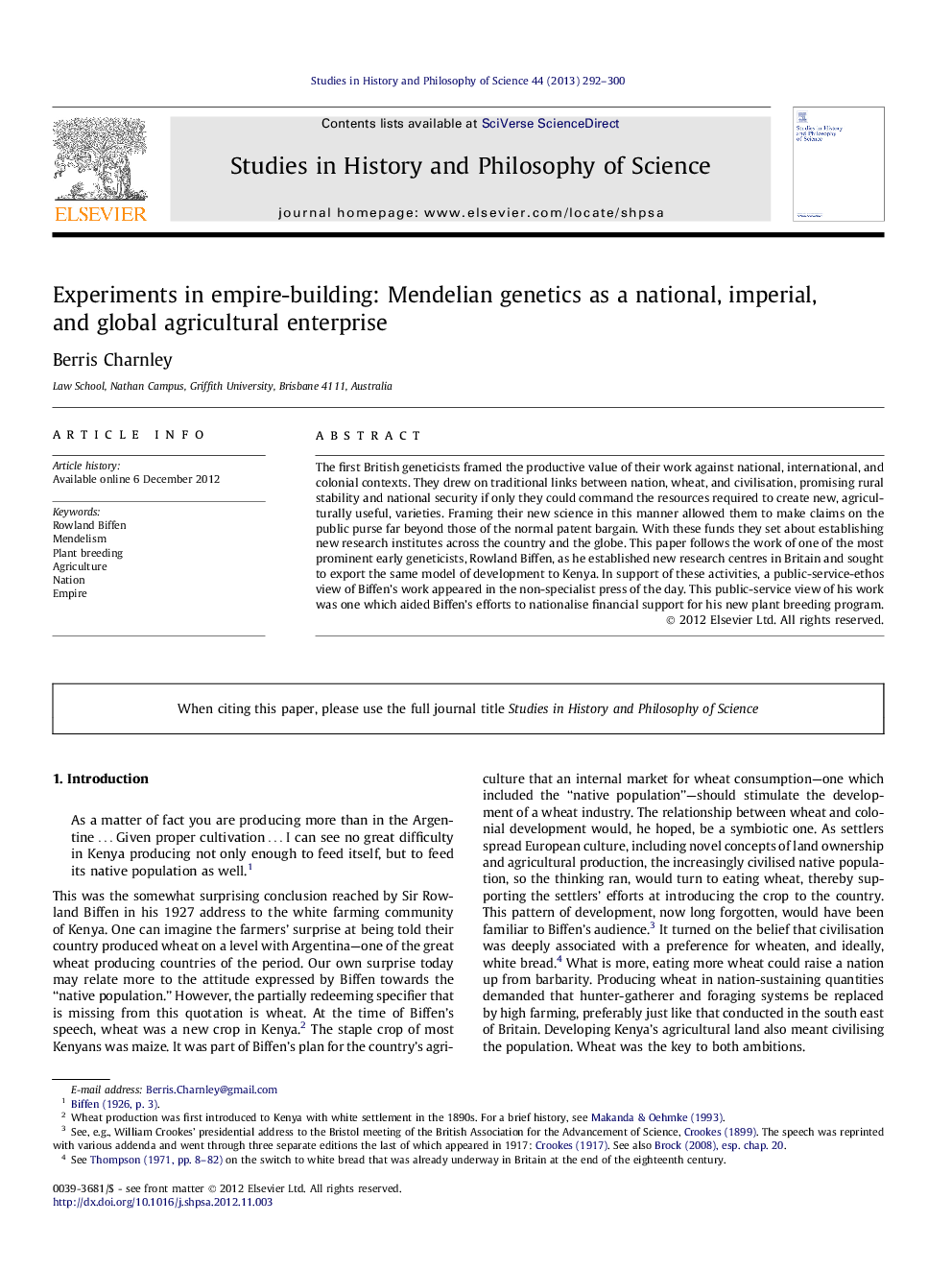| Article ID | Journal | Published Year | Pages | File Type |
|---|---|---|---|---|
| 1160254 | Studies in History and Philosophy of Science Part A | 2013 | 9 Pages |
The first British geneticists framed the productive value of their work against national, international, and colonial contexts. They drew on traditional links between nation, wheat, and civilisation, promising rural stability and national security if only they could command the resources required to create new, agriculturally useful, varieties. Framing their new science in this manner allowed them to make claims on the public purse far beyond those of the normal patent bargain. With these funds they set about establishing new research institutes across the country and the globe. This paper follows the work of one of the most prominent early geneticists, Rowland Biffen, as he established new research centres in Britain and sought to export the same model of development to Kenya. In support of these activities, a public-service-ethos view of Biffen’s work appeared in the non-specialist press of the day. This public-service view of his work was one which aided Biffen’s efforts to nationalise financial support for his new plant breeding program.
► Rowland Biffen believed genetics would revolutionise agriculture. ► Genetics and geneticists have always been embedded in an international context. ► Biffen and his contemporaries believed genetics would benefit the British Empire. ► Early geneticists were adept at promoting their new science in the non-specialist press.
